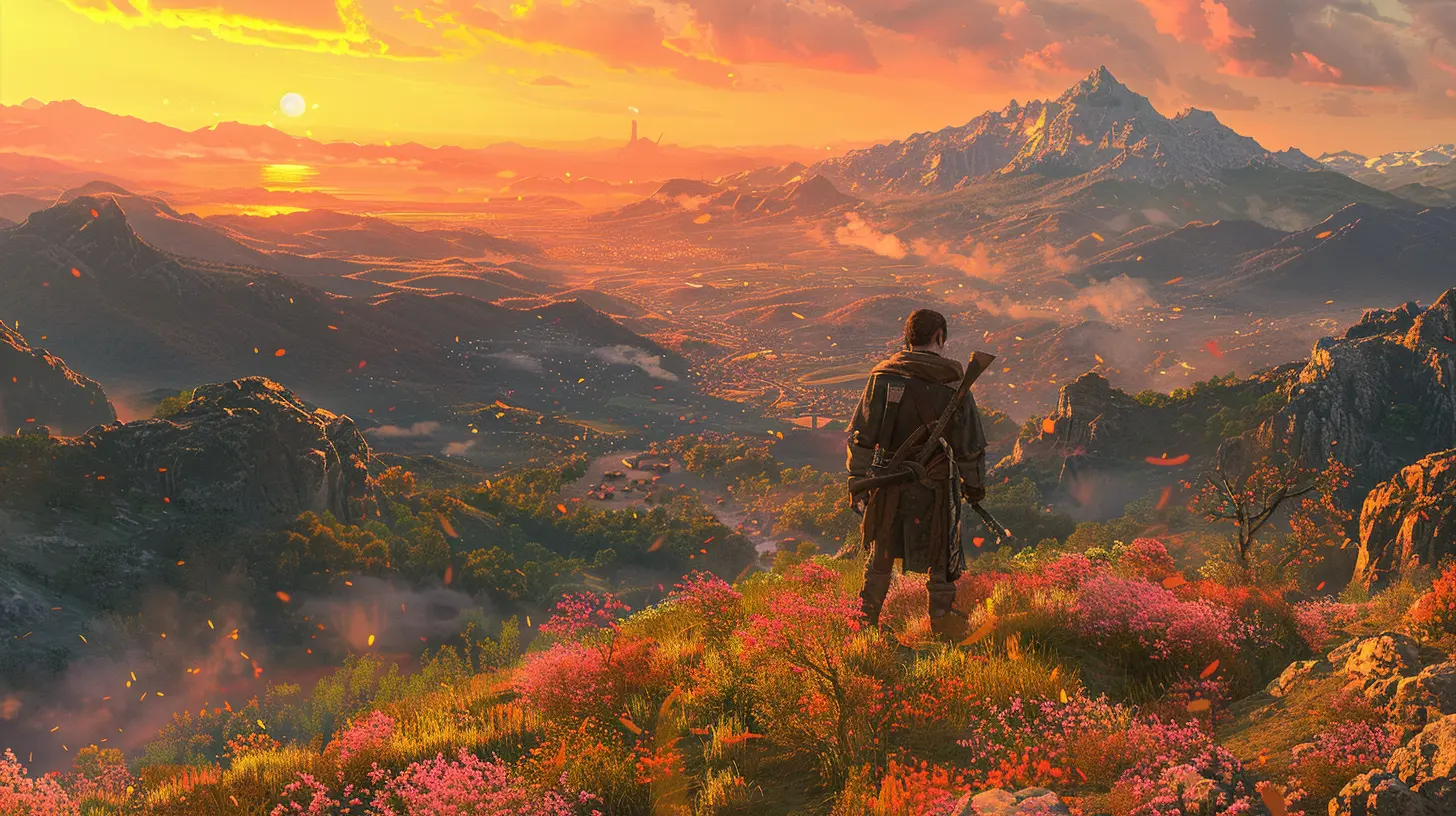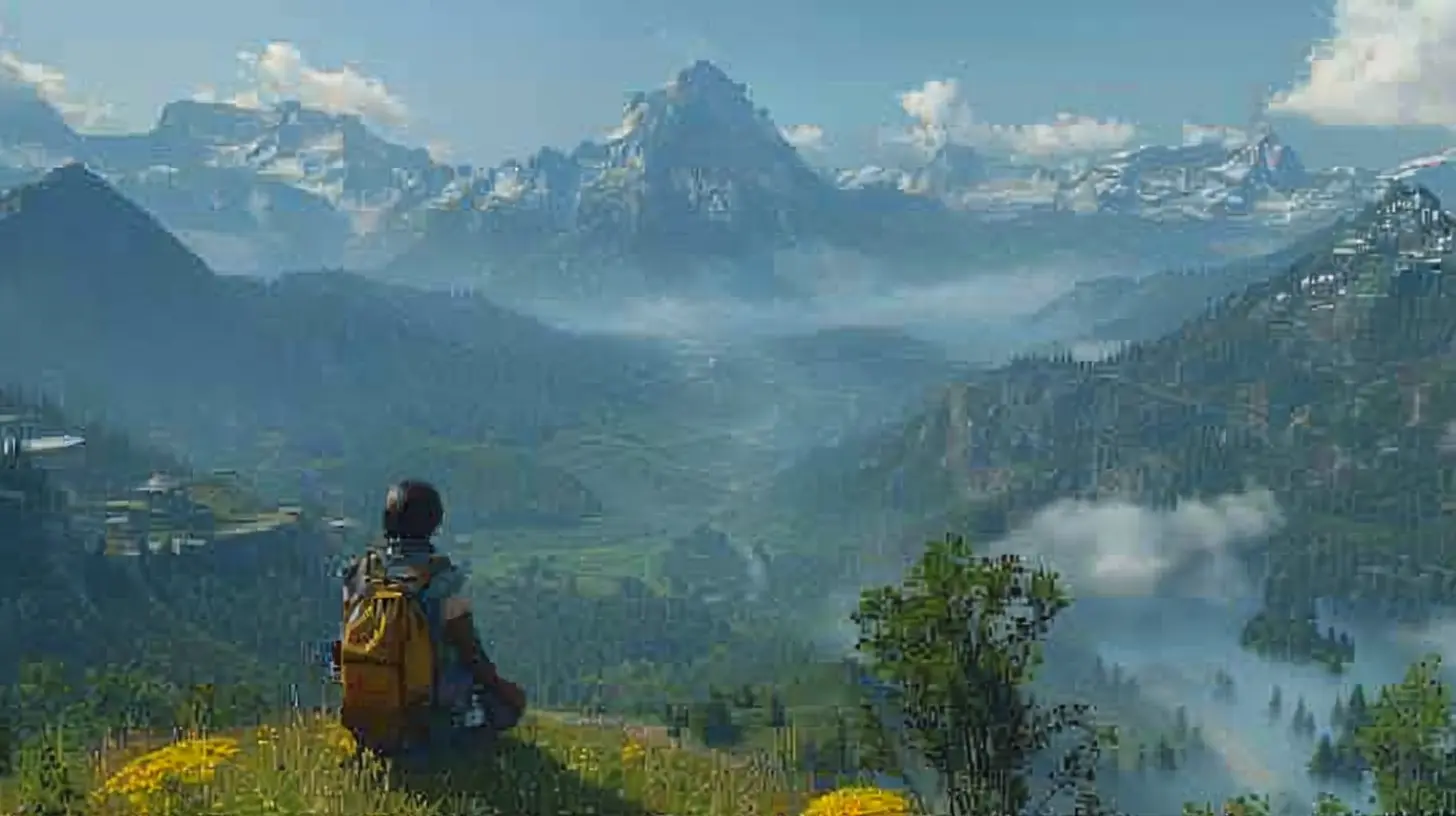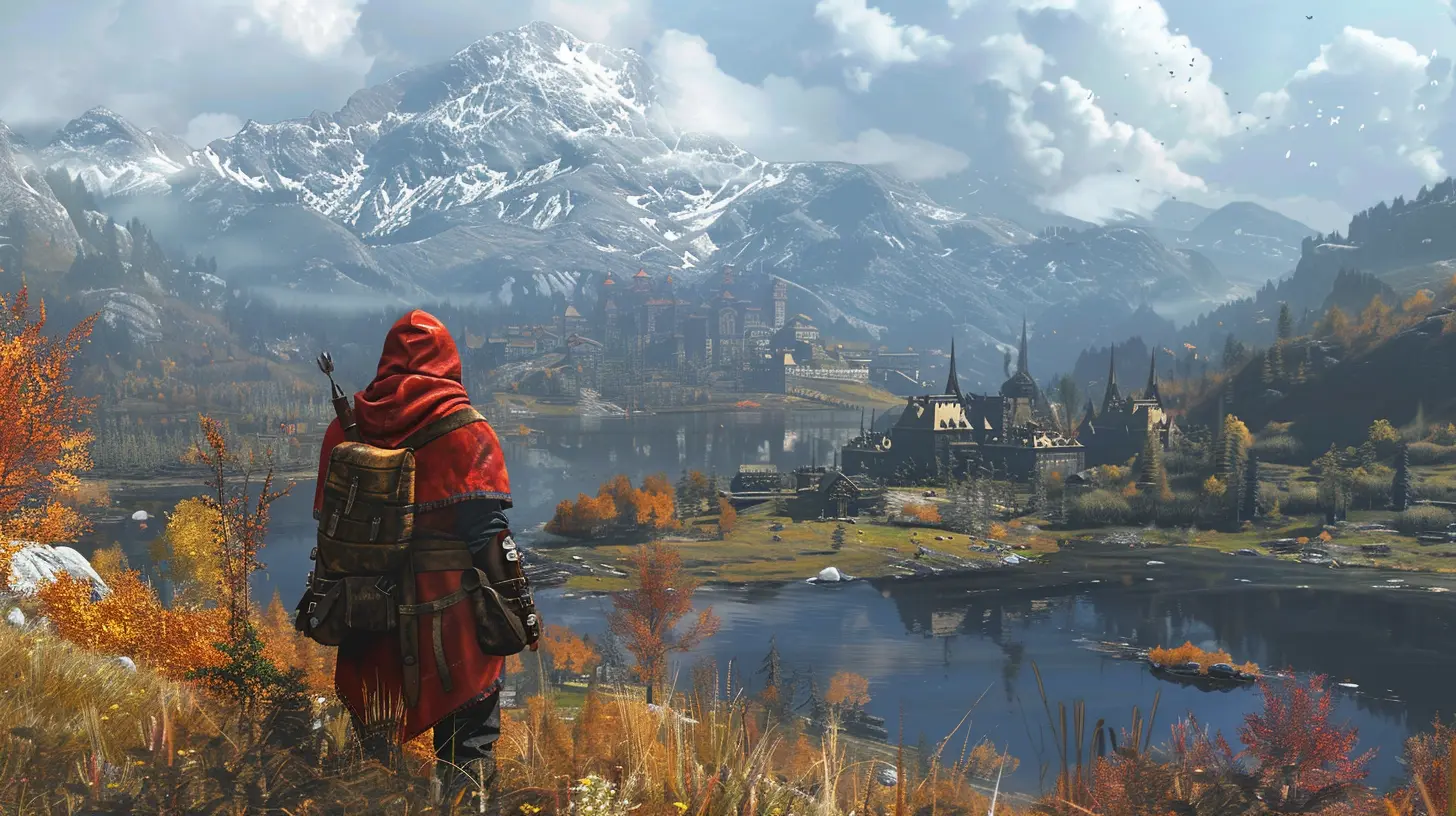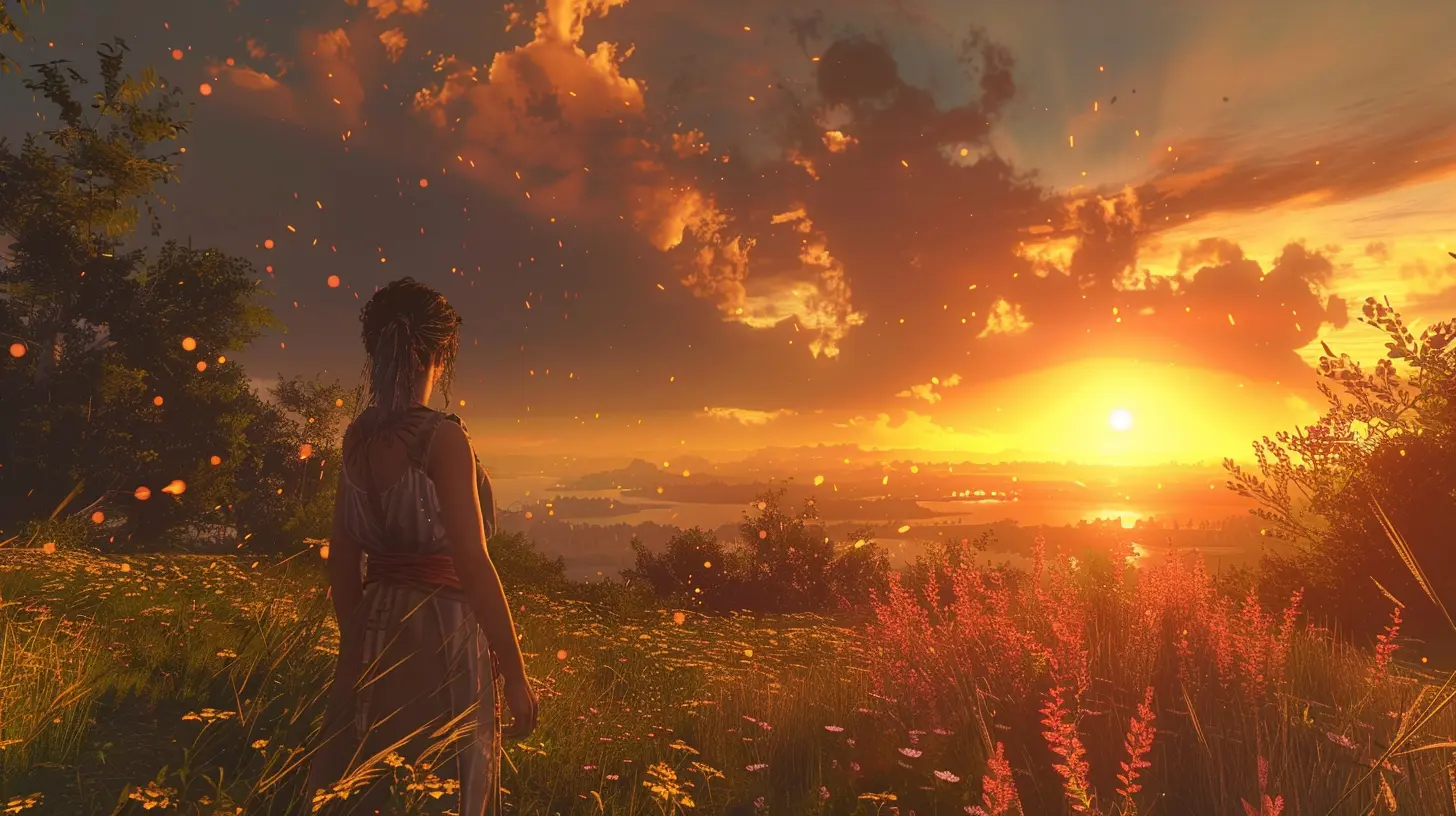How Open World Games Keep You Coming Back for More
28 September 2025
Have you ever found yourself wandering through a sprawling digital landscape, completely losing track of time? Yeah, me too. There's just something about open world games that hooks us, reels us in, and refuses to let go. Whether it's scouring the hills of Skyrim, trekking through the post-apocalyptic wasteland of Fallout, or navigating the chaos of Night City in Cyberpunk 2077, these games have mastered the art of keeping players glued to their screens.
So, what’s the secret sauce? Why do open world games feel so addictive? Let’s dive right in and unpack why we keep coming back for "just one more quest"—even if that quest turns into a 7-hour session (oops).
The Freedom to Do Whatever You Want
Okay, let’s be real here. One of the most appealing things about an open world game is the sheer freedom it grants you. No one’s telling you what to do (well, unless you count quest notifications, but we’ll get to that later). Want to ignore the main story and become a potato farmer? Go for it. Feel like climbing a random mountain just to see if something cool’s hidden up there? Have at it.It’s a lot like being handed the keys to a theme park and told, "Go nuts." You get to choose your own path, and that freedom creates a sense of ownership over your playthrough. Unlike linear games that funnel you down a set path, open world games encourage you to carve out your own experience. And honestly, who doesn’t love a good DIY adventure?
Endless Content (Like, Seriously Endless)
If open world games were relationships, they’d be that clingy partner who never wants to stop hanging out. These games never seem to run out of things to do. Just when you think you’ve finished all the main quests, side quests pop up. Complete the side quests, and suddenly there’s a treasure map or a new dungeon that “just” appeared. It’s a never-ending cycle that keeps you hooked.And if we’re being honest, open world games are really good at dangling shiny, new distractions. You might be on your way to complete an important quest when—wait, is that a glowing cave over there? Suddenly, you’re 40 minutes deep into fighting skeletons and looting treasure, completely forgetting why you started playing in the first place.
This constant drip-feed of content plays into our brain’s love for variety. There’s always something new to see, a puzzle to solve, or a boss to defeat. And every time we check something off our in-game to-do list, we get a tiny hit of dopamine. That’s the magic of endless content—it scratches the itch of accomplishment while keeping us curious about what’s next.
A Big Dose of "Hey, Look at That!"
Have you ever just stopped mid-game to admire the view? Open world games often feature these breathtakingly detailed worlds, teeming with life and brimming with personality. From towering mountain ranges to bustling city streets, developers pour time and effort into crafting worlds that feel alive. And honestly, we eat it up.In fact, a lot of open world games double as virtual vacation spots. Don’t want to leave your couch but still want to visit ancient Egypt? Play Assassin's Creed Origins. Craving some island vibes? Boot up The Legend of Zelda: Wind Waker. Feeling a bit medieval? Say hello to The Witcher 3.
These stunning backdrops make exploration inherently rewarding. Even if you’re not actively chasing quests, just wandering through these landscapes can feel like its own kind of adventure. It’s like the game world itself becomes a character—one you want to spend more time with.
Side Quests That Are Actually (Gasp!) Interesting
In many games, side quests are like the sad, forgotten leftovers in the back of the fridge: stale, unappealing, and a bit of a chore. But open world games? Oh, they do side quests differently. Instead of tacking on throwaway errands, they turn them into mini-adventures.Take The Witcher 3, for example. Some of its best stories aren’t even part of the main plot. Who could forget the time you helped a ghost reunite with her lost lover or uncovered the tragic history of a cursed village? These side quests go beyond fetch-this or kill-that; they’re packed with emotion, mystery, and depth.
This attention to detail makes side quests feel worth your time. You’re not just grinding for XP; you’re uncovering new lore, meeting interesting characters, and shaping the world around you. Basically, it’s like the game whispers, “Hey, you’re not just some random player—you matter here.”
The Appeal of “What’s Over That Hill?”
Let’s talk about curiosity for a second. Humans are naturally curious creatures—we can’t resist the urge to poke, prod, and explore. And open world games? They’re built to exploit that curiosity.There’s always some far-off hill, glowing ruin, or mysterious forest begging to be explored. And because the game world is so vast and open, every discovery feels like a reward. You’re not being led by the nose; you’re finding things because you want to.
Think about it. When’s the last time you stumbled across a hidden cave or stumbled upon a random encounter? That little thrill of discovery keeps you coming back. Open world games tap into that deep-rooted desire to see what’s out there, much like flipping through channels on Netflix, hoping to find the next big thing.
Player Agency and Customization: Your World, Your Rules
Let’s get one thing straight: open world games are basically giant sandboxes. And what do people love about sandboxes? They let you dig, build, and create however you want. Whether it’s designing your character, building a base, or choosing your moral alignments (looking at you, Paragon vs. Renegade players), these games thrive on customization.This sense of agency makes open world games feel personal. It’s your journey, not some cookie-cutter adventure you’re just along for. You get to shape how the story unfolds, decide who you want to ally with (or betray), and even influence the game’s ending in some cases.
It’s empowerment at its finest. And who wouldn’t want to feel like the master of their own digital destiny?
The Joy of Getting Lost (But in a Good Way)
Here’s a confession: I’ve lost track of time in so many open world games, it’s borderline embarrassing. But there’s something magical about getting so immersed that hours feel like minutes. It’s not just escapism—it’s a full-blown experience.When you truly dive into an open world game, it feels like stepping into another life. You lose yourself in the story, the setting, and the gameplay. And that’s the beauty of it. Open world games let us temporarily leave behind our mundane responsibilities and dive headfirst into epic adventures.
Sure, we could be folding laundry or paying bills, but wouldn’t you rather be slaying dragons or solving ancient riddles? I thought so.
Multiplayer Madness: Shared Adventures, Shared Laughs
While most open world games focus on solo adventures, some take it a step further by adding multiplayer elements. Think Grand Theft Auto Online or Red Dead Online. Suddenly, the open world becomes a playground for chaos with your friends.Multiplayer open worlds add a whole new layer of replayability. You’re not just exploring the game world; you’re creating memories with your crew. Whether you’re planning heists, racing cars, or just wreaking havoc, the social aspect keeps things fresh.
Plus, let’s face it: as fun as solo exploration is, everything’s better with a buddy. Even getting eaten by a bear (yep, looking at you, Red Dead Redemption 2) is hilarious when you’ve got someone to laugh about it with.
The DLC That Just Keeps Giving
Remember when a game was just… one game? Well, not anymore! Open world games have mastered the art of DLC (downloadable content), adding expansions that keep players coming back for even more. Just when you think you’ve "beaten" the game, a new DLC drops, adding entire story arcs, regions, and activities to explore.Games like The Elder Scrolls V: Skyrim or The Witcher 3 have delivered DLCs so massive, they practically feel like separate games. It’s an ingenious way to keep players invested — and let’s be honest, we’re more than happy to shell out a few extra bucks for another taste of the world we’ve fallen in love with.
Final Thoughts
At the end of the day, open world games are more than just games—they’re experiences. They tap into our love for freedom, exploration, and storytelling, creating memories that stick with us long after we’ve turned off the console. They’re like that favorite book you keep re-reading, or that song you’ve had on repeat for weeks. There’s always a reason to come back.Whether you’re an adventurer craving epic quests, a wanderer drawn to stunning landscapes, or a completionist hunting down every last collectible, open world games have a little something for everyone. And that’s why they’ll always have a special place in our hearts (and on our hard drives).
all images in this post were generated using AI tools
Category:
Open World GamesAuthor:

Leif Coleman
Discussion
rate this article
1 comments
Maggie McCarty
Open world games masterfully blend freedom with discovery, creating immersive worlds that invite players to forge their own narratives, leaving an indelible mark on their gaming experience.
October 7, 2025 at 4:26 AM

Leif Coleman
Thank you! Open world games truly excel at giving players the freedom to explore and create their own stories, making each experience uniquely memorable.


